Rearranging deck chairs on the Titanic: Belgium’s latest move doesn’t solve critical issues with EU CSA Regulation
The EDRi network has long-urged European Union (EU) lawmakers to ensure that efforts to combat OCSEA (online child sexual exploitation and abuse) are lawful, effective and technically feasible. The goal to protect children online is vital. This can only be done if the proposed measures work and are compatible with human rights, including privacy and the presumption of innocence.
Filter resources
-
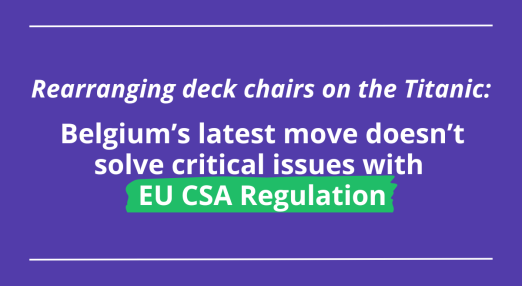
Rearranging deck chairs on the Titanic: Belgium’s latest move doesn’t solve critical issues with EU CSA Regulation
The EDRi network has long-urged European Union (EU) lawmakers to ensure that efforts to combat OCSEA (online child sexual exploitation and abuse) are lawful, effective and technically feasible. The goal to protect children online is vital. This can only be done if the proposed measures work and are compatible with human rights, including privacy and the presumption of innocence.
Read more
-

2023 Digital Rights Update: Eastern Partnership CSO Meter
Countries of the Eastern Partnership region continue digitalisation efforts and some implemented promising data protection legislation. However, the expansion of surveillance and spread of disinformation put digital rights under constant pressure in 2023.
Read more
-

New EU health data law endangers medical secrecy
EU lawmakers have agreed on a compromise for the European Health Data Space (EHDS) which will expose everyone’s medical records to unnecessary security and privacy risks in the name of research and “innovation”.
Read more
-
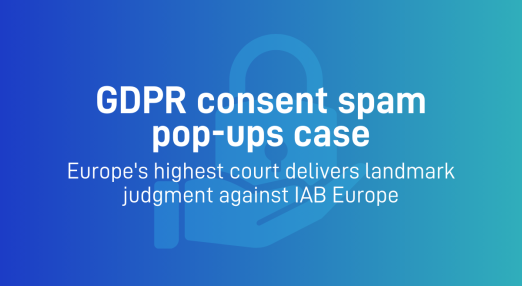
Europe’s highest court delivers landmark judgment against IAB Europe in GDPR consent spam pop-ups case
The Court of Justice of the European Union's landmark decision on March 7, 2023, against the auctioning of personal data for advertising purposes under the General Data Protection Regulation (GDPR) challenges the legality of invasive tracking and profiling in the context of online advertising. It marks a significant victory for privacy advocates and sets a precedent for the protection of personal data in the digital era.
Read more
-
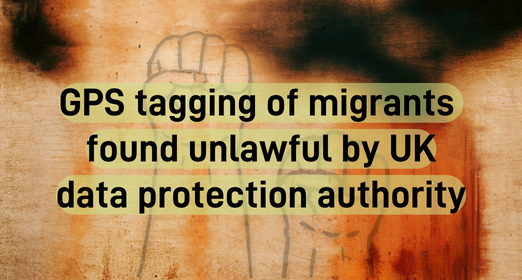
GPS tagging of migrants found unlawful by UK data protection authority
As a result of Privacy International’s 2022 complaint against the UK Home Office, the UK data protection authority (ICO) has found that the GPS tagging of migrants and asylum seekers arriving to the UK small boats was unlawful, and issued a formal warning for all future data protection compliance of GPS tagging as a whole. This is a major step towards better scrutiny of the human rights implications of the surveillance of migrants.
Read more
-
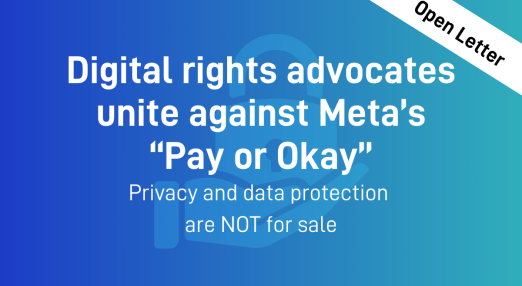
Open letter: Digital rights advocates unite against Meta’s “Pay or Okay”. Privacy and data protection are NOT for sale
In response to three Data Protection Authorities (DPAs) requesting a European Data Protection Board (EDPB) opinion on Meta's 'Pay or Consent' approach, Access Now, the EDRi office and other EDRi members have united in an open letter urging the Board to reject these subscription-based approaches unequivocally.
Read more
-

Bits of Freedom launches campaign on DSA user rights
EDRi member in the Netherlands Bits of Freedom has launched a campaign to bring attention to user rights addressed by the European Union's new digital law, the Digital Services Act. On the brand new website, that engages civil society, you can find guidelines on how to enforce your own platform rights.
Read more
-

The privacy saga with Norwegian Social Service continues
We promised you an update to Janne Cecilie Thorenfeldt’s case taking the Norwegian Labour and Welfare Administration (NAV) on the European Court of Human Rights (ECHR). Since EDRi member Elektronisk Forpost Norge (EFN) reported about the massive GDPR violations of the Service, here is what happened.
Read more
-

When law enforcement undermines our digital safety, who is looking after our interests?
Imagine your friend sent you a private DM on Twitter. Now imagine, instead of the content remaining for your eyes only, Twitter letting the police also take a peek at it. Such intrusive practices of state actors accessing private messages have grave consequences for our lives. Some people can be physically harmed, and for some, it can mean that their families and friends could get prosecuted. At a collective level, the harm this does to our communities and society at large is immeasurable.
Read more
-
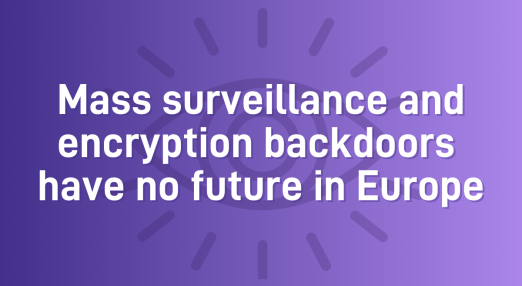
Mass surveillance and encryption backdoors have no future in Europe
Today, 20 February, in a public consultation at the European Commission, the EDRi network calls on EU lawmakers to end all attempts to normalise dangerous surveillance practices that rip people off their safety and privacy online.
Read more
-

GDPR enforcement: European Parliament must guarantee procedural rights to ensure people’s data protection
While it is a step forward in better enforcing the General Data Protection Regulation (GDPR), the European Parliament’s current GDPR Procedural Harmonisation Regulation text is still not enough to safeguard the fundamental rights of people. Today, February 15, the text was approved in the Committee for Civil Liberties, Justice and Home Affairs (LIBE), laying out the blueprints for enhanced procedures for cross-border GDPR complaints and ex-officio investigations.
Read more
-

Temporary ePrivacy derogation: Companies like Facebook must never indiscriminately scan people’s private messages
In response to the European Commission’s public consultation on the extension of the interim ePrivacy derogation, EDRi warns that even when they are ‘voluntary’, any measures for digital platforms to indiscriminately scan people’s private messages are an unacceptable interference with our human rights.
Read more
